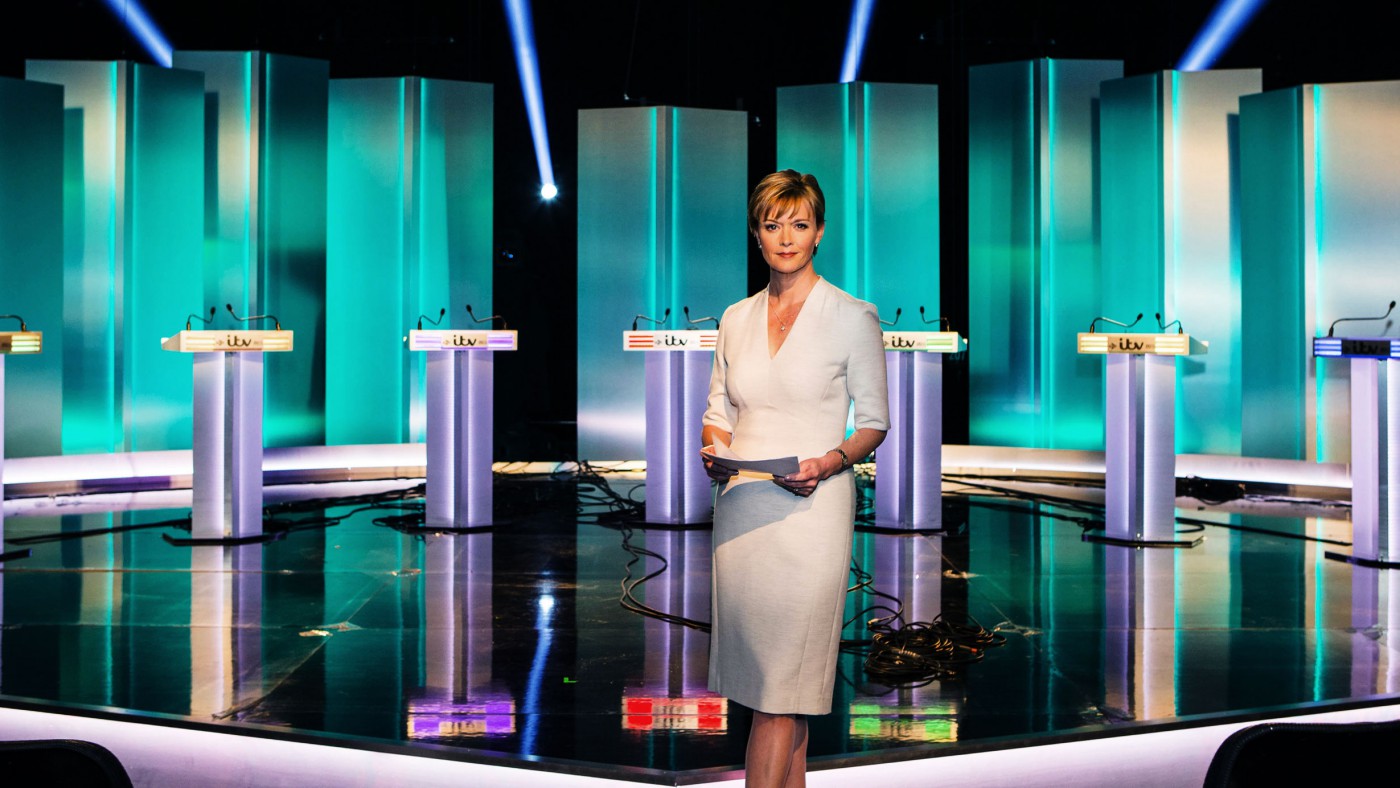Apologies if you are not interested in the UK general election, or if you come to CapX to get away from domestic politics. On that score, Beatrice Faleri has written a fascinating piece for CapX on Italy, “a nation on the run” that is exporting many of its best and brightest. And our friends at E21 in Washington have dissected the amount of tax Americans pay and where it goes.
But if you are interested in the UK general election, here is a quick guide to the seven-way leaders’ debate that is taking place tonight. A lot has been written about whether it matters, or whether it makes any difference. What is certain is that it is happening and it will get a lot of media attention in the UK. Don’t expect too much tonight on issues such as Britain’s £1.4 trillion national debt, the risks from the Eurozone and the unstable foreign policy picture. There are seven of them involved and they have 90 minutes. Here are five things to look out for.
1) Nicola Sturgeon. The SNP leader is the major threat to the bigger parties tonight, and that includes the Tories. Unknown to most of the audience, she is a serious operator who will appeal to quite a few left-leaning and centrist English voters. She is also a far better debater than her predecessor Alex Salmond. When Sturgeon attacks the Oxbridge boys’ club of Westminster she also won’t be doing so as a fringe leader of a rag-bag outfit such as the Greens, or UKIP with two MPs. She runs a government, albeit of a small country, and she leads a party that is surging. Miliband and Cameron had better have gamed this properly and be ready to challenge her on the collapse in the oil price and much else besides.
2) Which Ed Miliband will turn up? His interview with Absolute Radio this week has greatly cheered up Labour partisans, because he was so damned good (to put it as Ed M probably would now he is trying to sound tough.) After five years, Miliband finally showed how relaxed and funny he can be one on one. It was very Blair like too, from the use of “y’know” to the hand gestures and disbelieving glances off camera. But if you get to the end of that interview you’ll see a change comes over Miliband when he talks about serious stuff. It’s like a switch is flicked and back he goes to being stale and formulaic, sounding like a student leader demanding a rent strike. However, if he can somehow imbue his answers on serious topics with a little of the energy and humour he displayed talking about Blue Peter and his childhood, then he could triumph tonight. Tricky to pull it off.
3) Is Cameron getting nervous yet? The Tory leader has yet to find his form in this election campaign. He is left looking for a late break and needing a big switch from voters who tune in during the final days of the campaign. That means he has a choice in the leaders debate. Does he opt for a highly controlled, statesmanlike approach, hoping that floating voters see him as the obvious choice? The risk with that is that he could look boring. But if he cuts loose in an attempt to inject some excitement, he may look petulant or bullying. Quite a dilemma and not easy to get it right.
4) Nick Clegg talking about how brave he and the Lib Dems were to go into coalition. Clegg keeps doing this, as though it counts as bravery for the leader of a third party to luck out and get a big government job that involves being driven about and seeing the Queen regularly. The crisis of 1940 gave Britain Clement Attlee as Deputy Prime Minister. Attlee wasn’t self-obsessed, so he didn’t talk in terms of “his” bravery. He did his job well and with humility, all out of duty and patriotism. In contrast, Britain in 2010 got Nick Clegg.
5) Nigel Farage getting duffed up quite badly. Some of the other leaders will have pre-prepared lines on race and UKIP and you’ll see it coming a mile off. Much of the audience watching will like this a lot and Farage may look cornered. When this happens, social media will go wild with people who already dislike UKIP saying that the party has really had it now. But perversely, this outcome could help Farage. The key thing about UKIP is that 85% of the electorate is not for UKIP and is never going to be. But the 15% or so of voters who are for Farage tend to think that the reason the other parties and the media shout him down is because he is the no nonsense man who dares to say the unsayable. Unless he really blunders in some way (and if he can get in some good lines about the other parties having had MPs who went to jail) then his supporters will be unmoved and his team will be content.
On the other hand, if you are in the UK and don’t fancy the leaders’ debate, there is what looks like an excellent documentary on meteorites on BBC Four at 8pm.


